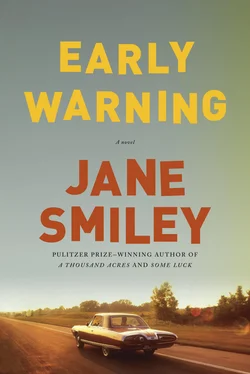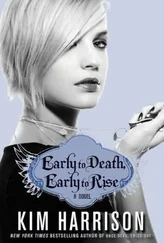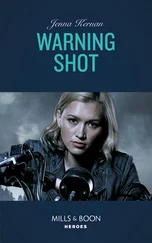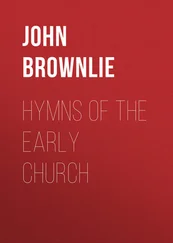Jane Smiley - Early Warning
Здесь есть возможность читать онлайн «Jane Smiley - Early Warning» весь текст электронной книги совершенно бесплатно (целиком полную версию без сокращений). В некоторых случаях можно слушать аудио, скачать через торрент в формате fb2 и присутствует краткое содержание. Год выпуска: 2015, Издательство: Knopf, Жанр: Современная проза, на английском языке. Описание произведения, (предисловие) а так же отзывы посетителей доступны на портале библиотеки ЛибКат.
- Название:Early Warning
- Автор:
- Издательство:Knopf
- Жанр:
- Год:2015
- ISBN:нет данных
- Рейтинг книги:5 / 5. Голосов: 1
-
Избранное:Добавить в избранное
- Отзывы:
-
Ваша оценка:
- 100
- 1
- 2
- 3
- 4
- 5
Early Warning: краткое содержание, описание и аннотация
Предлагаем к чтению аннотацию, описание, краткое содержание или предисловие (зависит от того, что написал сам автор книги «Early Warning»). Если вы не нашли необходимую информацию о книге — напишите в комментариях, мы постараемся отыскать её.
, a national best seller published to rave reviews from coast to coast.
Early Warning — читать онлайн бесплатно полную книгу (весь текст) целиком
Ниже представлен текст книги, разбитый по страницам. Система сохранения места последней прочитанной страницы, позволяет с удобством читать онлайн бесплатно книгу «Early Warning», без необходимости каждый раз заново искать на чём Вы остановились. Поставьте закладку, и сможете в любой момент перейти на страницу, на которой закончили чтение.
Интервал:
Закладка:
—
ANDY DIDN’T GO back to Dr. Smith right away. After that first appointment, she decided that he made her nervous — not exactly what he said, but the eyes, the posture, and the hands. After JFK’s assassination (there were only two time periods in the world now, before and after that event), she had started reading a book about frontal lobotomies. As far as Andy could understand it, the doctor lifted the patient’s eyelid, pressed the point of an ice pick against the top of the eye socket, and drove it into the patient’s brain with a hammer. Then he did it on the other side. Dr. Smith struck her as the sort of person who could comfortably do such a thing. But Dr. Grossman was giving up on her — Dr. Grossman had consulted her mentor about Andy’s “lack of affect.” Their only really good session had been as friends, deploring the assassination, expressing a fear they shared that much more was going on in Washington and in the world than most people suspected. After that one, though, Dr. Grossman had gone back to being a professional, and Andy had begun to run out of tales to tell, either as dreams or as childhood experiences. She read about Freud’s patient Dora, and made the mistake of telling one of Dora’s dreams as her own. Dr. Grossman seemed to recognize it, though as a dream Andy thought it was fairly common — returning home after the death of her father, then getting lost, not nearly so interesting as dreaming that a guest came for dinner, ate more than his share, and then went out to the outhouse to relieve himself. When he was halfway to the outhouse, he suddenly swelled up to a monstrous size, jumped onto the roof of the house, and began riding the house like a horse, screaming and shaking the whole place. This dream Dr. Grossman found trivial and without meaning.
And so she returned to Dr. Smith. With the spring, he seemed healthier and not as depressed as he had in the fall. She wrote him a check for five hundred dollars, ten appointments in advance. The next thing she had to do was stand up against the wall in his office so that he could draw pictures of her — front, back, left side, right side. This took the whole of the first fifty minutes. At her next appointment, he laid the pictures on the table in his office. Over each of them, he had superimposed a grid, and by means of this grid, he diagnosed where and to what degree she was out of balance. For example, if she had had disproportionately large hips, he would have diagnosed a blockage between her lower body and her upper body. For these women, the first step to a cure was to lift their shoulders and open their mouths wide, and to make a habit of taking deeper and deeper breaths. As a result, they would eventually speak the truth about themselves.
In Andy, the disproportion went the other way — she had broad shoulders and a prominent bust, but narrow hips, slender legs, and slender feet. She was barely, he said, connected to the earth, and, more important, to her sexuality. How often did she and her husband have sexual relations?
“Almost never,” said Andy.
And did she have sexual relations with other men?
“No,” said Andy.
“Women?”
Andy shook her head.
He took her over to the mats and had her sit cross-legged and close her eyes. He straightened her here and adjusted her there. It hurt. Then he had her think of sex and say five words. The five words she said were “shoe, earth, automobile, bath, and Kennedy.” But she wasn’t thinking of sex — those were just the first words that came into her mind as she looked around his office and out the window. There was a long silence.
She opened her eyes. The position was getting slightly more comfortable, and she took a deep breath. Just then, Dr. Smith sat down on the mat right in front of her, crossing his legs in an Oriental position, with his feet turned upward on his thighs and his knees flat on the mat. After a moment of silence, he leaned forward until their faces were almost touching, and he enunciated the words “Don’t bullshit me, Andrea Langdon. I don’t like it.”
His breath was sour. Andy jerked backward, but then she said, “All right.”
They agreed to meet on Mondays, Wednesdays, and Fridays.
—
JESSE WANTED to learn to drive the tractor. He was very sober about this, undeterred by Joe’s previous reactions. “When?”
Joe said, with pretend seriousness, “I don’t know.”
“Did you think about it, Dad?”
“Since when? Since yesterday, when you asked before?”
He nodded.
“No, Jesse, I haven’t thought about it since then. You are eight.”
“Uncle Frank drove Grandpa’s car to Usherton when he was my age.”
“Who told you that?”
“Granny Rosanna.”
“She must be remembering wrong.” He didn’t say that Frank had been thirteen at the time, which was bad enough.
“How old was he?”
“Laws were different then.”
“How old was he?”
“Tell me, is your name Walter?”
“Why do you ask that?”
“Because your grandfather Walter drove his mom and dad crazy asking questions.”
“Really?”
Joe looked at Jesse, said, “Get down off the seat of the tractor.”
He got down. Then he said, “Really? Crazy? Like they went to a mental asylum?”
“No, like they whipped him.”
“Are you going to whip me?”
“Have I ever whipped you?”
“No.”
“Am I going to whip you?”
“No.”
Then there was a silence, and Jesse said, “When can I learn to drive the tractor?”
Joe laughed and said, “When you’re thirteen. Let’s see. That was summer, so Frank was thirteen and a half when he drove that car. You are eight and a half. So you have a while.”
“Five years.”
Joe allowed himself a smile, then said, “Good subtraction. You must be a smarty-pants.”
Jesse didn’t smile, only said, “When is it going to stop raining?”
“The weatherman says later in the week.”
“Is the corn ruined?”
“Not yet.”
“Are you worried?”
“I’m never worried.”
“Why not?”
“Because,” Joe said, “something always works out on a farm.”
—
IT WAS Henry’s idea that Claire and Paul would take their two weeks’ vacation in England, where he was helping at a dig not far from York — he wasn’t an archeologist, but he thought all medievallit professors should get out of the library and into the dirt or the bog. He wrote to Claire that it was a beautiful spot — there was plenty to see, not only York Minster, but the Shambles, an old street still left from the Middle Ages, as well as a castle and several museums. She and Paul could also go for walks nearby, in the Vale of York, or a little farther away, in the Lake District.
Rosanna said, “Well, Granny Elizabeth would have loved that, though the Chicks and the Cheeks, as she never forgot to tell me, were from Wessex, which is way at the other end of England.” This reminded Rosanna of something, and three days later, in Claire’s mail came a little box, wrapped in white paper. When Claire opened it, inside there was a tiny lace handkerchief, quite discolored but lovely, of handmade crochet lace in a scalloped pattern. There was a note attached. Claire opened it carefully. There was her father’s handwriting: “Made by my great-grandmother, Etta Cheek, sometime around 1830. Saved for Claire, March, 1942.” She had never seen the box, the handkerchief, or the note. She was three years old in 1942. She burst into tears. She thought she could smell the scent of his clothes rising around her.
When she called the next day and asked, her mother said, “Oh goodness. That year, Frank was in Europe. We simply forgot your father’s birthday, so here is what Walter did. He went and found a box of different things, one for each of you children. He let everyone choose from the box what you would most like to have. Lillian chose a feather. Joe chose a sprig of something, thyme? Lavender it was. Henry chose a coin. And we put away a photo of your father and a couple of army buddies for Frank. This handkerchief went to you. We set it aside for safekeeping, and you know what happens when I do that. When you said you might go to England, it struck me that that was what was in that little box in my dresser drawer. I’m sorry it has taken me so long to…Oh, Claire, honey, don’t cry.”
Читать дальшеИнтервал:
Закладка:
Похожие книги на «Early Warning»
Представляем Вашему вниманию похожие книги на «Early Warning» списком для выбора. Мы отобрали схожую по названию и смыслу литературу в надежде предоставить читателям больше вариантов отыскать новые, интересные, ещё непрочитанные произведения.
Обсуждение, отзывы о книге «Early Warning» и просто собственные мнения читателей. Оставьте ваши комментарии, напишите, что Вы думаете о произведении, его смысле или главных героях. Укажите что конкретно понравилось, а что нет, и почему Вы так считаете.











